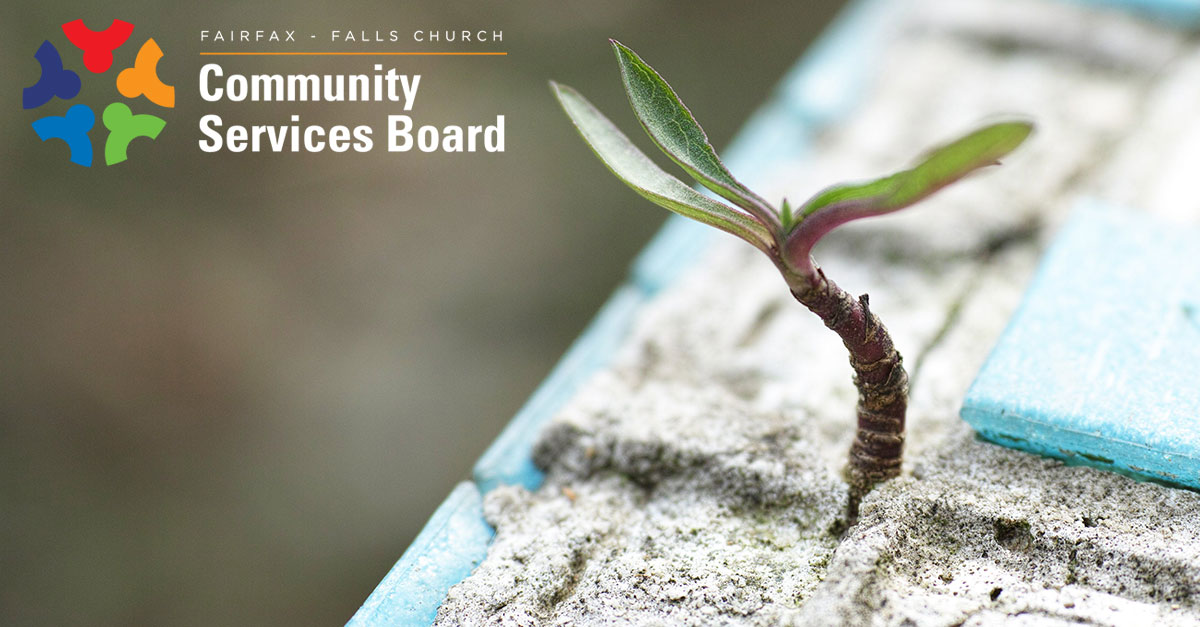January 8, 2026
At the Fairfax-Falls Church Community Services Board (CSB), the Entry, Assessment and Referral (EAR) Unit helps people take the first step in getting behavioral health care. Whether contacting EAR by phone or in person, everyone is met by a team ready to listen, provide support and connect them to appropriate services. This month, we spoke with Shana Grady, Psy. D, the Program Manager for the EAR Unit, to learn more about what they do.Q: What is the EAR Unit? Dr. Grady: The Entry, Assessment and Referral (EAR) Unit is often called the “Front Door” for all services at the CSB. It’s a welcoming first stop for help for you, for a family member, or as a provider looking to connect someone to care.Q. What services do they provide? Dr. Grady: EAR includes our call center and walk-in unit that offers walk-in assessments both onsite and via telehealth (where appropriate). Our assessments are conducted by clinicians to help provide an understanding of someone’s behavioral health needs and offer treatment recommendations. Sometimes, EAR connects people directly to CSB services. At other times, they refer them to community programs or other resources better suited to meet their goals. The team is there to listen, assess risk and connect you to the right support—all with warmth and care.Q. What’s something unique about receiving services from the EAR Unit? Dr. Grady: We are grateful to work in partnership with the CSB’s Peer Journey to Hope Program. It’s an important part of our EAR service that includes trained peers, professionals who have lived with behavioral health challenges, who can provide support from the first point of contact and help you connect with the most appropriate resources.Q: Who’s on the EAR team? Dr. Grady: EAR is made up of three teams, working together to serve adults, youth and families. Entry Call Center Team: Includes trained behavioral health specialists who answer calls, manage incoming referrals and help callers navigate resources both within and outside the CSB.Youth Assessment Team: Includes a team of licensed/license eligible clinicians, triage behavioral health specialists and substitute relief counselors who work with young people and their families.Adult Assessment Team: Includes a team of licensed/license eligible clinicians, triage behavioral health specialists, relief counselors, and two nurses who support walk-ins, appointments and telehealth assessments.In FY2025, the Entry Call Center Team showcased their unwavering dedication by expertly handling over 5,000 calls. Each call was met with skill, compassion and the understanding that every person has a unique situation requiring a tailored response to individual needs. In addition to the calls, the EAR Unit completed over 5,000 “triage” screenings resulting in 2,400 assessments.Q: What happens when someone calls the EAR Unit?Dr. Grady: When you call EAR, a team member listens carefully to your needs or those of your family member and helps guide you to the appropriate next steps. For behavioral health support, we will do a phone screening and then recommend a walk-in or telehealth appointment for a further assessment. We’re trained to assess for significant risk and emergencies. In urgent situations, we may connect people to Emergency Services, Mobile Crisis or 911. When a family or individual is seeking services for developmental disabilities, EAR can assess their situation to determine if they should be referred to CSB’s Developmental Disabilities services or if there’s a better referral elsewhere.Q: Can someone just walk in for services? Dr. Grady: Yes, absolutely! We do our best to make sure people who walk in are seen that day. However, there may be times when a team member asks you to come back for full service. We highly encourage you to call our Entry Call Center Team before walking in. We understand it can take courage to walk through the door, and we aim to make sure everyone leaves feeling more hopeful than when they arrived.Q: Do you have a success story to share? Dr. Grady: A new client with a developmental disability recently came to the CSB. EAR staff connected them with a case manager who conducted the appropriate assessment, arranged for a multi-lingual interpreter, and supported the concerned family members who were there. The individual was seen for a same day assessment and successfully resolved the concern they came in for, helping them to leave much happier than when they arrived. Meanwhile, call center staff had a person with suicidal thoughts on the line that led staff to swiftly and skillfully keep the individual talking while coordinating with Emergency Services to dispatch the mobile crisis unit to the individual for support. This exemplifies how our front door team provide so much more than just “triage” or “assessment”. Our clinical team responds with speed, skill and flexibility to take care of all those seeking support, providing helpful guidance at every point until the person (and family) feels more hopeful about taking the next steps to better health and recovery.Q: Why should someone come to EAR? Dr. Grady: Starting the process of finding behavioral health support can feel scary, but EAR exists to transform that fear into hope. Our compassionate team is your first stop for care, whether you call us or walk in. Let us help you take that first step, you don’t have to do that alone.Q: How do people reach EAR? Dr. Grady: You can call EAR at 703-383-8500 TTY 771, Monday-Thursday, 8:30 a.m. to 5:00 p.m., and Friday, 10:30 a.m. to 5:00 p.m. Walk-ins are welcome at the Sharon Bulova Center for Community Health Monday-Thursday 8:00 a.m. to 3:00 p.m., and Friday 10:00 a.m. to 3:00 p.m. For emergency mental health or substance use issues, walk-in services are available 24/7 at the Sharon Bulova Center for Community Health or call 703-573-5679 TTY 711. Contact for media inquiries: CSBCommunications@fairfaxcounty.gov.











